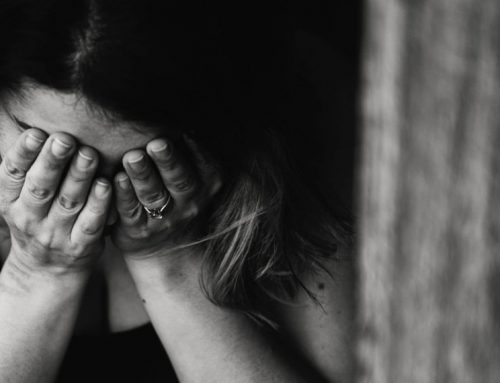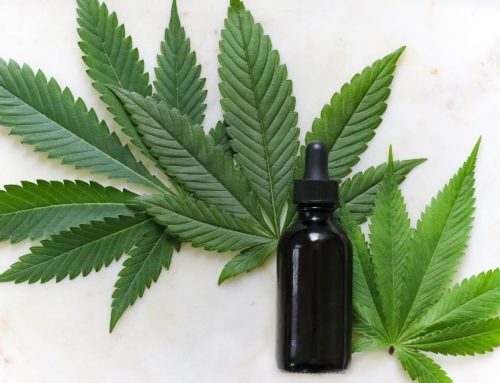Cannabidiol (CBD) is all over the news, celebrated as a nutraceutical (nutritional supplement acting as a pharmaceutical) that has wide-ranging benefits, from preventing seizures and anxiety to helping with sleep and nausea. We all have a few friends who tell us about how CBD fixed their health problems, so there is lots of anecdotal evidence. And although scientific research on CBD is relatively recent, so far it is very promising. A major part of the appeal of CBD is that it isn’t associated with feeling “high” because CBD extracts and concentrates don’t contain THC, which is the psychoactive ingredient in cannabis.
What does the research say about CBD and Anxiety?
A small 2010 study found that CBD could reduce symptoms of social anxiety in people with a diagnosed anxiety disorder. Brain scans of participants revealed changes in blood flow to the regions of the brain linked to anxiety. In this study, CBD not only made participants feel better but also changed the way their brains responded to anxiety. A 2011 study also found that CBD could reduce social anxiety. For that study, researchers looked specifically at CBD to treat anxiety associated with public speaking. Research published in 2014 found that CBD oil had anti-anxiety and antidepressant effects in an animal model.
A 2015 analysis of previous studies concluded that CBD oil is a promising treatment for numerous forms of anxiety, including social anxiety disorder, panic disorder, obsessive-compulsive disorder, generalized anxiety disorder, and post-traumatic stress disorder.
In 2019, since the legalization of the drug in Canada, more studies have been published indicating the beneficial effects of CBD usage on feelings of anxiety, anxiety disorders, and anxiety-related symptoms such as insomnia and nausea. So far, short-term case studies with human patients, as well as testing on mice and rats, have shown that CBD reduces physical anxiety symptoms in the majority of participants, and has very few side effects. It has even been found that using CBD while detoxing from opioids can eliminate the associated anxiety and cravings in persons with heroin-use disorder (wow).
It seems that CBD acts on serotonin regulation in the nervous system, increasing the amount of serotonin in the body. Serotonin (5-HTP) helps the body regulate emotions and mood. The majority of anti-anxiety and anti-depressant medication that is prescribed today are SSRIs: Selective Serotonin Reuptake Inhibitors.
Research still needs to be done on the effects of long-term usage of CBD, as scientists don’t know what kind of an effect this will have on the body over time. Clinical research also needs to be done using double-blind randomized control trials with humans: this is the gold standard for medical research.
How can I use CBD for my Anxiety?
If you are taking any other medication, or have any medical conditions, please check with your doctor before starting treatment. CBD can interact with blood thinners and anti-seizure medication, for example.
If you experience feelings of anxiety before events, such as going to the dentist or giving a speech, then CBD can help you.
If you have been diagnosed with an Anxiety Disorder such as Post-Traumatic Stress Disorder, Generalized Anxiety Disorder, or Social Anxiety Disorder, then CBD may be beneficial for you.
Studies have shown than taking 1mL of a 300mg CBD tincture before a stressful event can bring relief from feelings of anxiety such as shortness of breath and high heart rates.
Especially if you are new to CBD and/or Cannabis products, try using a tincture first. Usually sold as dropper bottles, tinctures are easy to control the dosage, and are very easy for the body to absorb. The tincture is applied sublingually, which means you put the medicine under your tongue and hold it there for 10-15 seconds. The medicine will enter your bloodstream through the small capillaries under your tongue, before you swallow it. There may be a slight burning sensation, as the carrier for tinctures is often alcohol-based.
It does not matter if you live in Canada or in Vietnam, people all over the world have tried CBD in some shape or form.
How much CBD should I take?
Although there isn’t any scientific research that is detailed enough to offer dosage guidelines, anecdotal evidence and case studies have some suggestions for us. Dosage will depend on CBD and Cannabis experience, symptom severity, and body weight.
Start with a lower dose, such as 1mL or 0.5mL of 150mg or 300mg CBD. Usually, one dropper-full is 1mL. Try taking it before bed at first, as your body gets used to the effects. Monitor the results over a week or two, and adjust as necessary. You may not feel any effects for about two weeks, as the body adjusts to the medicine. Discontinue use if you have any unwanted side effects – although side effects have been rare in the research, they do happen occasionally.
CBD has lots of preliminary evidence to suggest that it could be useful for many people with Anxiety disorders, and feelings of anxiety in daily life. We have a wide variety of quality CBD tinctures, oils, and edibles that you can try without the “high” of THC. Make sure to start slow, and talk to your doctor about your new medication.







Leave A Comment
You must be logged in to post a comment.